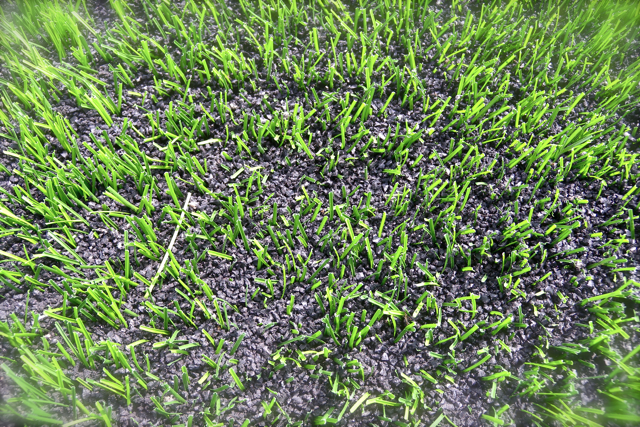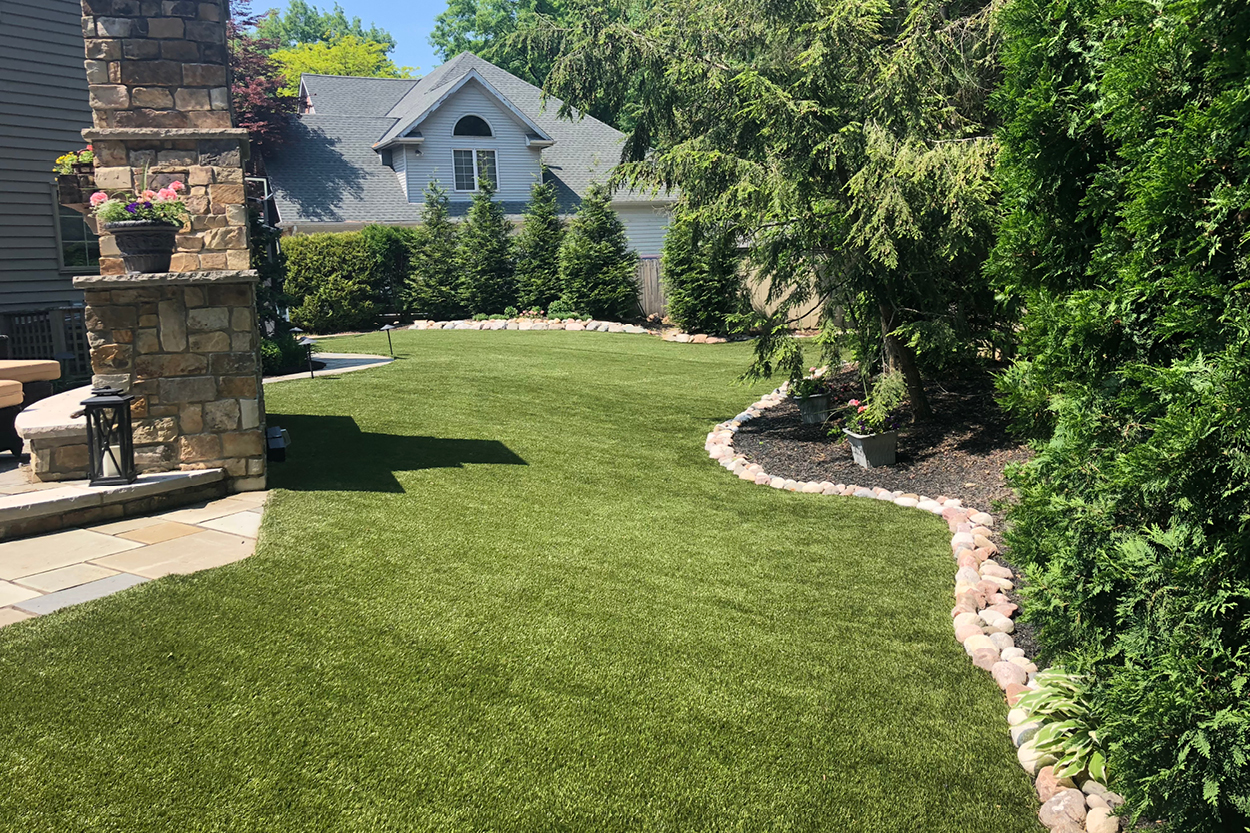Premier Phoenix Turf Companies Providing High-End Synthetic Lawn Solutions
Premier Phoenix Turf Companies Providing High-End Synthetic Lawn Solutions
Blog Article
Look Into the Environmental Advantages of Opting for Synthetic Grass Solutions
The adoption of artificial turf remedies presents an engaging chance to attend to pressing ecological obstacles. By dramatically decreasing water use and minimizing the application of damaging chemicals, these options not only promote sustainable landscaping yet also shield local communities. The reduced carbon impact connected with reduced upkeep tasks adds to a much more sustainable approach to land monitoring. The implications of these benefits expand beyond plain conservation initiatives, raising inquiries regarding their lasting influence on environment conservation and overall eco-friendly equilibrium. Exploring these measurements exposes an intricate interplay worth thinking about.
Water Preservation Advantages
One of one of the most significant benefits of artificial turf is its ability to preserve water. Standard grass yards call for considerable irrigation, particularly in areas vulnerable to dry spell or water restrictions. In comparison, man-made turf does not need watering, dramatically reducing the total need for water resources. This attribute is particularly helpful in arid areas where water shortage is a pushing problem.
By getting rid of the need for normal watering, fabricated lawn adds to sustainable landscape practices and aids alleviate the ecological impact of excessive water intake. Furthermore, the preservation of water encompasses the reduction of drainage, which can bring about soil disintegration and waterway air pollution.
In addition, the installation of synthetic grass allows districts and homeowners to allocate water resources more successfully, concentrating on essential uses such as alcohol consumption water and farming. The change towards fabricated lawn not just promotes responsible water usage however additionally straightens with wider ecological goals focused on maintaining all-natural resources.
As areas progressively prioritize sustainability, the water conservation benefits of synthetic grass offer an engaging instance for its adoption in commercial and property landscaping tasks.
Decreased Chemical Usage
The shift to synthetic grass substantially reduces the reliance on chemical therapies frequently used in all-natural yard upkeep. Conventional lawn management normally entails the application of herbicides, pesticides, and fertilizers to promote growth and control pests. These chemicals can present risks to human health and wellness, neighborhood wildlife, and the setting, contributing to dirt and water contamination.
On the other hand, synthetic grass eliminates the need for these damaging substances. Once set up, it needs minimal upkeep, primarily including routine cleansing and seldom infill replenishment. This decrease in chemical usage not just benefits the instant environment yet likewise adds to more comprehensive eco-friendly security. By decreasing the launch of artificial compounds into the ecosystem, synthetic grass promotes much healthier soil and water systems.
In addition, the lack of chemical runoff connected with synthetic grass setups assists safeguard regional rivers from air pollution, supporting water life and maintaining biodiversity. Artificial turf companies phoenix. As communities significantly focus on lasting practices, opting for synthetic turf provides a sensible remedy that aligns with environmental preservation goals. Via this change, home proprietors can enjoy lavish eco-friendly spaces without endangering ecological health and wellness, leading the way for an extra sustainable future
Lower Carbon Impact

Moreover, the setup of man-made turf can result in substantial water preservation. Natural yards require substantial amounts of water for irrigation, which not only contributes to the carbon impact connected with water extraction and treatment but also stress local water sources. In comparison, man-made lawn needs minimal upkeep, needing no watering, thereby significantly reducing water usage and its connected energy prices.
Furthermore, the durability of synthetic turf adds to its decreased carbon impact. With a life expectancy of up to 15 years or more, the requirement for constant substitutes is lessened, causing less waste and reduced energy intake in production and disposing of standard turf choices. On the whole, fabricated lawn presents a sustainable alternative for environmentally mindful landscape design.
Habitat Preservation
Habitat conservation is an important factor to consider in the debate over landscape design options, particularly when contrasting man-made lawn to all-natural turf. Natural yard yards often require comprehensive upkeep, consisting of making use of herbicides, plant foods, and chemicals, which can detrimentally influence local ecological communities. These chemicals can seep into the dirt and waterways, harming indigenous flora and fauna over at this website and interfering with local habitats.
On the other hand, artificial turf presents a chance to reduce the ecological footprint of landscaping. By choosing artificial grass, home owners can decrease the disturbance of all-natural habitats connected with standard lawn care techniques. Synthetic grass removes the requirement for damaging chemicals, thus safeguarding nearby wild animals and keeping the stability of bordering ecological communities. Furthermore, the setup of synthetic grass can result in the conversion of former yard locations into even more biodiverse landscapes, such as pollinator gardens or native plant areas, which can sustain regional wild animals.
Eventually, the change to synthetic grass not only conserves water and minimizes maintenance efforts yet additionally promotes a more harmonious connection between human activities and the natural surroundings, advertising environment conservation at the same time.
Long-Term Sustainability
Long-lasting sustainability is an essential aspect in examining the advantages of synthetic grass over typical turf yards. Among the most significant benefits of fabricated lawn is its durability; it can last approximately 15-20 years with very little maintenance, whereas all-natural yard calls for regular reseeding and replacement. This durability lowers the demand for continuous sources, such as water, plant foods, and chemicals, which are important for maintaining a healthy turf yard.
In addition, synthetic grass contributes to a decrease in carbon discharges connected with yard care devices. Traditional lawns commonly call for gas-powered lawn mowers, leaners, and blowers, every one of which add to air contamination. Phoenix turf companies. In comparison, synthetic grass removes the requirement for such devices, promoting a cleaner atmosphere
Moreover, the manufacturing of artificial turf increasingly utilizes recycled materials, enhancing its sustainability profile. As makers embrace environmentally friendly techniques, the environmental impact of synthetic grass proceeds to reduce.

Final Thought
The adoption of synthetic grass options offers considerable environmental advantages, including considerable water conservation, reduced dependence on damaging chemicals, and a reduced carbon footprint. Man-made lawn aids in preserving all-natural habitats by reducing land disruption and advertising long-lasting sustainability through the use of long lasting products. Collectively, these factors emphasize the capacity of synthetic turf to add favorably to environmental health and offer a viable look at more info alternative to standard Website landscaping techniques in a progressively resource-conscious world.
In comparison, fabricated turf does not need watering, substantially reducing the overall demand for water sources. By lessening the release of artificial compounds into the environment, artificial grass advertises healthier soil and water systems.
Furthermore, the installment of synthetic grass can result in significant water conservation. In comparison, synthetic turf needs very little maintenance, calling for no watering, therefore considerably minimizing water usage and its associated power prices.

Report this page